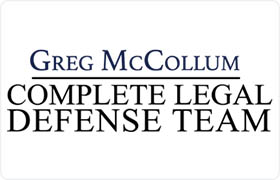Horry County, SC Criminal Lawyers, page 3
Sponsored Law Firm
-
 x
x

Click For More Info:
-
Greg McCollum Complete Legal Defense Team
1012 38th Avenue North Suite 202 Myrtle Beach, SC 29577» view mapCriminal Defence Law Complete Legal Defense Team
Our goal at the Complete Legal Defense Team is to examine the facts and circumstances completely and help our clients.
800-634-0690
James Joseph Murray
Real Estate, Lawsuit & Dispute, Divorce & Family Law, Criminal
Status: In Good Standing Licensed: 61 Years
Kenneth R. Moss
Workers' Compensation, Estate Planning, DUI-DWI, Real Estate
Status: In Good Standing Licensed: 27 Years
James R. Battle II
Civil Rights, Construction, Contract, Criminal
Status: In Good Standing Licensed: 19 Years
Michael Joseph O'Sullivan
Power of Attorney, State and Local, Criminal, Consumer Protection, Defamation & Slander
Status: In Good Standing Licensed: 19 Years
 Greg McCollum Myrtle Beach, SC
Greg McCollum Myrtle Beach, SC AboutGreg McCollum Complete Legal Defense Team
AboutGreg McCollum Complete Legal Defense Team Practice AreasExpertise
Practice AreasExpertise
